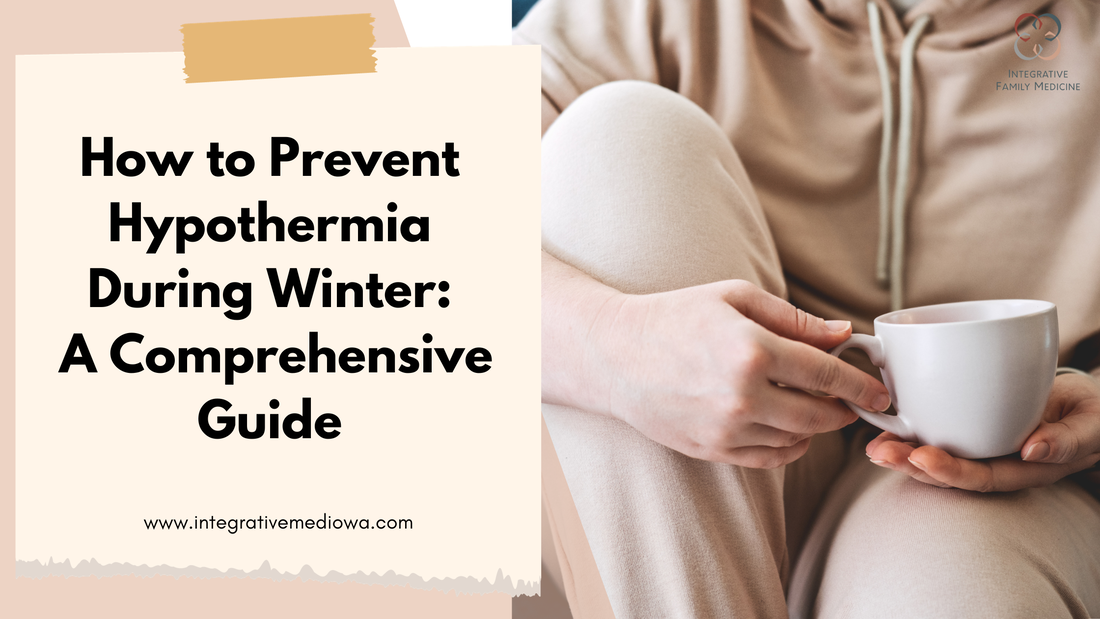|
Winter brings the joy of holidays, cozy evenings by the fire, and scenic snowfall, but it also poses some serious health risks, particularly hypothermia. Understanding how hypothermia affects the body and how to prevent it is essential for staying warm and safe during the chilly season. This is particularly crucial for vulnerable populations like infants. In this blog, we'll explore how you can best prepare for winter to keep yourself and your loved ones safe.
How to Prevent Hypothermia Preventing hypothermia starts with proper preparation. Layering is the key to staying warm in the winter. Begin with moisture-wicking base layers to keep sweat away from the skin. Insulating layers should follow to trap body heat, and a waterproof outer layer helps to protect against wind and precipitation. Pay special attention to extremities like hands, feet, and ears. These areas are more prone to heat loss and frostbite. A good pair of gloves, thermal socks, and a snug hat are winter essentials. Proper nutrition is another crucial factor in hypothermia prevention. Eating high-energy foods like nuts, lean proteins, and whole grains can help maintain your metabolic rate and keep your internal furnace going. Don't forget to stay hydrated as well. Contrary to popular belief, dehydration is not just a summer concern. The dry winter air can sap moisture from your body, lowering your resistance to cold temperatures. Drink plenty of water or hot herbal teas to stay hydrated. Staying Warm in the Winter Active movement is another excellent way to combat hypothermia. Physical activity warms up the body, so if you find yourself in extremely cold conditions, do simple exercises like jumping jacks or jogging in place to elevate your body temperature. However, overexertion can lead to sweating, which could dampen your clothing and make you colder in the long run. The key is to strike a balance—keep moving but don't overdo it. Make use of technology as well. Battery-operated heated clothing items, such as vests and socks, are increasingly popular and can provide an extra layer of warmth when needed. Keeping Infants Warm in the Winter Infants are particularly susceptible to hypothermia due to their small body mass and limited ability to regulate temperature. Keep them well-insulated in layers of clothing, and always make sure their head and neck are covered when going outdoors. Avoid heavy blankets or quilts in their cribs, as these can lead to overheating or suffocation. Instead, opt for wearable blankets that provide the right amount of insulation without the associated risks. For car travel, dress your infant in thin layers rather than a bulky coat, as the latter can interfere with the proper functioning of car seat straps. Always keep an emergency kit in the car with extra blankets, warm clothing, and snacks. In conclusion, winter can be a wonderful time of year, but it's important to take precautions against hypothermia. Understanding how hypothermia affects the body, how to prevent it, and special considerations like staying warm in the winter and keeping infants warm can make all the difference in ensuring a joyful and healthy season for everyone.
0 Comments
Your comment will be posted after it is approved.
Leave a Reply. |
Blog Info
Archives
June 2024
Categories
All
|
|
Visit our Locations
IFM | West Des Moines 475 S. 50th St., Suite 600 West Des Moines, IA, 50265 *Temporarily Closed* IFM | Ankeny 207 NE Delaware Ave. Suite 20 Ankeny, IA 50021 |
Office HoursMonday 9:00 a.m. - 5:00 p.m. Tuesday 9:00 a.m. - 5:00 p.m. Wednesday 9:00 a.m. - 5:00 p.m. Thursday 9:00 a.m. - 5:00 p.m. Friday by appointment. Sat & Sun Closed |
© 2024 Integrative Family Medicine of Iowa, PLLC.
All rights reserved.
All rights reserved.



 RSS Feed
RSS Feed

